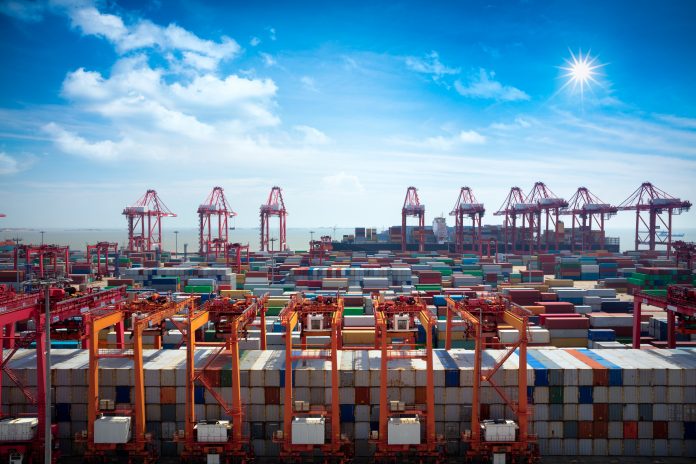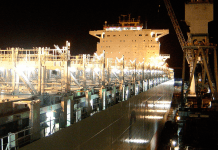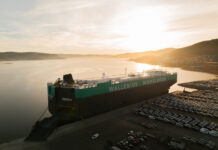
Based on the analysis of maritime power for the period from 2021 to 2024, using indicators such as shipping connectivity, port throughput, and container fleet size, several key findings emerge that underscore the dynamic nature of maritime competitiveness in Asia.
The analysis expectedly reveals that China stands out as the most powerful maritime nation by a considerable margin. This dominance is attributed to China’s unparalleled performance across the three indicators. China’s extensive maritime infrastructure, robust port facilities, and substantial container fleet contribute to its leading position. The country’s strategic investments in port development and global shipping routes further reinforce its preeminent status in international maritime trade.
In contrast to China’s dominance, the other Asian countries—Malaysia, Japan, South Korea, and Singapore—display a notable closeness in their shipping capabilities. This proximity highlights the intense competition within the region, where each country is striving to enhance its maritime influence despite varying sizes and capacities. The relatively similar performance levels among these nations suggest a high degree of geostrategic competitiveness in shipping trade.

Singapore and South Korea:
Singapore and South Korea emerge as significant players in the regional maritime landscape. Singapore has successfully stabilized its position, maintaining a strong and consistent presence in global trade. This stability can be attributed to Singapore’s strategic location, advanced port facilities, and efficient shipping services, which have collectively bolstered its maritime power.
Conversely, South Korea has experienced a slight decline in its maritime performance. While South Korea remains a formidable player, this decline suggests potential challenges or shifts in its maritime strategy.
Malaysia and Japan:
Malaysia and Japan demonstrate a trend toward convergence in their maritime capabilities. Both countries, while smaller in scale compared to China, Singapore, and South Korea, have shown improvements in their metrics. Malaysia’s efforts to enhance port infrastructure and expand its container fleet are reflected in its growing maritime power. Similarly, Japan has managed to strengthen its maritime position through strategic investments and upgrades in port and fleet operations.
Geostrategic Implications:
The findings underscore the strategic importance of maritime power in the Asian region. China’s preeminence in maritime trade highlights its influential role in shaping global shipping routes and trade dynamics.
In conclusion, while China remains the undisputed leader in maritime power, the relative competitiveness among other Asian countries indicates a dynamic and evolving maritime landscape. The ability of these nations to adapt and innovate in response to changing global trade patterns will be crucial in determining their future positions in the maritime arena.
Alexandros Itimoudis
Shipping Analyst





